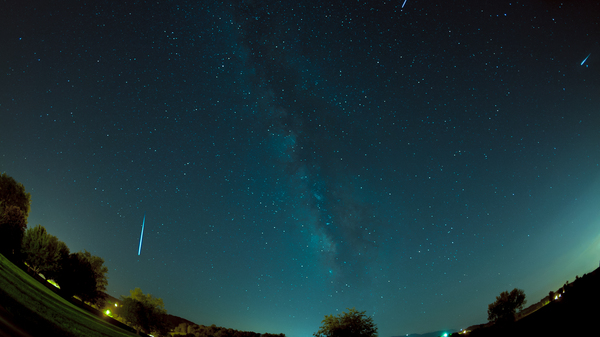August Is the Eighth Month of the Year
August is the last month of summer in the northern half of the world. It is named after the first Roman emperor, Augustus Caesar.

August's birth flower is the poppy.
©bigstockphoto.com/Madlen
August is the eighth month in the Gregorian calendar and has 31 days. In the northern half of the world, August is the last month of summer. In the southern half, it is the last month of winter.
The Month of Augustus
The meaning of August comes from ancient Rome: Augustus is Latin and means “the venerable one” or “the great one.” It was the title given to the first Roman emperor, Gaius Caesar. The Roman senate decided in 8 BCE to name a month in honor of the emperor. They chose the old Roman month of Sextilius and renamed it Augustus.
Interesting Dates in August 2025
August 24, 2025: Pluto Demoted Day, a reminder of the day in 2006 when the International Astronomical Union declared Pluto to be a dwarf planet instead of a full-sized planet. This day is only celebrated on Earth.
August 27, 2025: The Polar Day ends in the northernmost town in the world. For residents of Ny-Ålesund on Svalbard in Norway, a long day comes to an end. A very long day—the Sun has been staying above the horizon since April. This long time of uninterrupted sunshine is called Polar Day. The Sun finally sets around August 27 and remains below the horizon until February.
Astronomical Events in August
Sturgeon Moon: August’s Full Moon is known as the Sturgeon Moon, named after a huge freshwater fish that can be found in great numbers in August. Because August is harvesting season in the Northern Hemisphere, August’s Full Moon is also called Grain Moon, Fruit Moon, and Barley Moon. In 2025, the Sturgeon Moon is at 08:55 UTC on August 9.
Perseid Meteors: The Perseid meteor shower is known to be one of the most active and brightest meteor showers of the year. They are usually active between July 17 and August 24. They tend to be most visible between August 11 and August 13.
Mercury at Greatest Elongation West: On August 19, Mercury appears at its farthest from the Sun in the morning sky. It’s an excellent opportunity to observe the planet, as it’s possible to see with the naked eye shortly before sunrise. However, it is important to exercise caution—never attempt to observe Mercury while any part of the Sun is above the horizon, as this can cause serious eye damage. Find Mercury on our Night Sky Map.
Black Moon: Most of the world experiences a seasonal Black Moon on August 23. This is the third New Moon in a season that happens to have four New Moons. This is a rare occurance that happens around every 33 months.
See all events in the Cosmic Calendar

The Perseids are most visible in August.
©bigstockphoto.com/JohnDorton
History of August
In the ancient Roman calendar, August was initially called mens sextilius, the sixth month, because the Roman calendar started in March. Sextilis had 31 days. Around the year 700 BCE, the Roman king Numa Pompilius expanded the calendar from ten to twelve months by introducing January and February. Sextilis was reduced to 29 days.
In 154 BCE, a rebellion forced the Roman senate to change the beginning of the civil year from March to January 1st. With this reform, Sextilis officially became the eighth month.
In the year 46 BCE, Julius Caesar introduced a new calendar system—the Julian calendar. He added ten days to the year and introduced the leap day. In the new Julian calendar, Sextilis was expanded to 31 days.
In the year 8 BCE, the Roman senate then renamed Sextilis to honor the first Roman emperor, Augustus Caesar. Augustus was not the emperor’s name but his title. It means “the great” or “the venerable.” The Roman senate gave this title to the emperor Gaius Caesar Octavius in the year 27 BCE because of his military and political victories that founded the Roman empire.
August Birthstone and Birth Flower
According to tradition, the birthstones for August are peridot and onyx. Its birth flower is the gladiolus or poppy, representing beauty, strength, love, marriage, and family.
Zodiac Signs in August
- Leo (Lion): July 23 – August 22
- Virgo (Virgin): August 23 – September 22